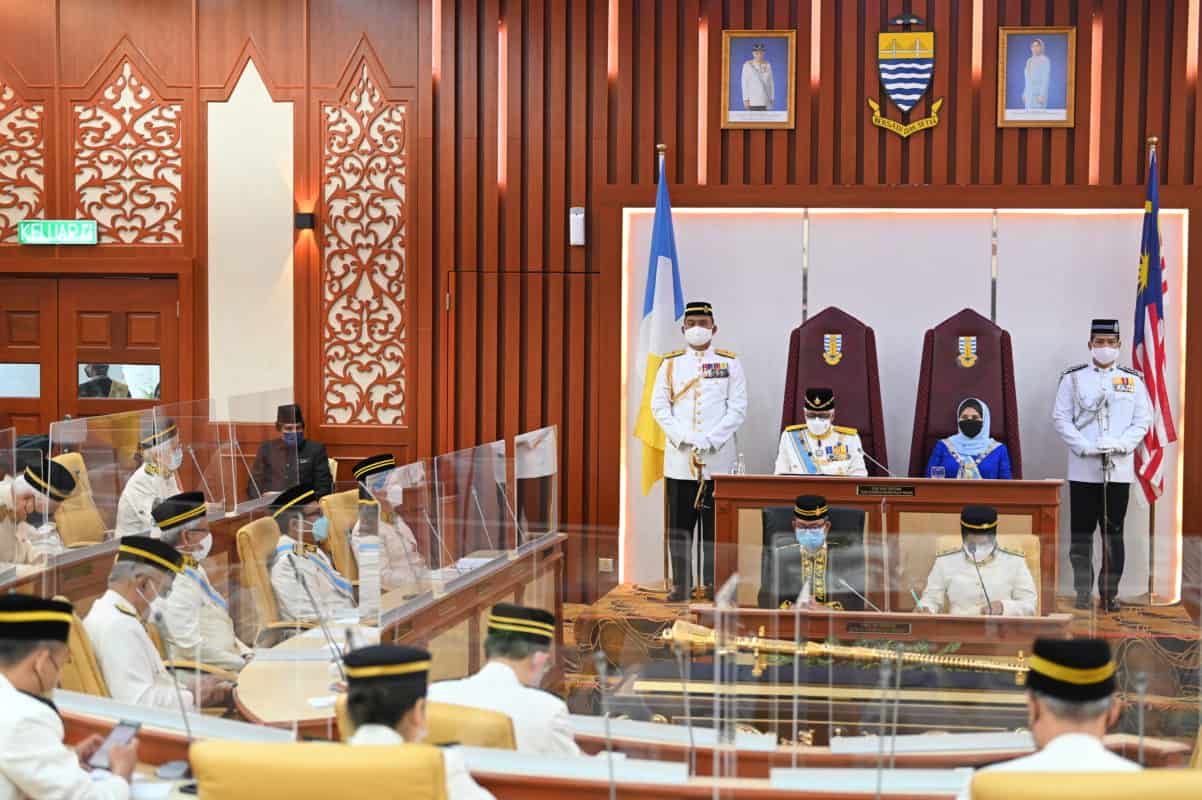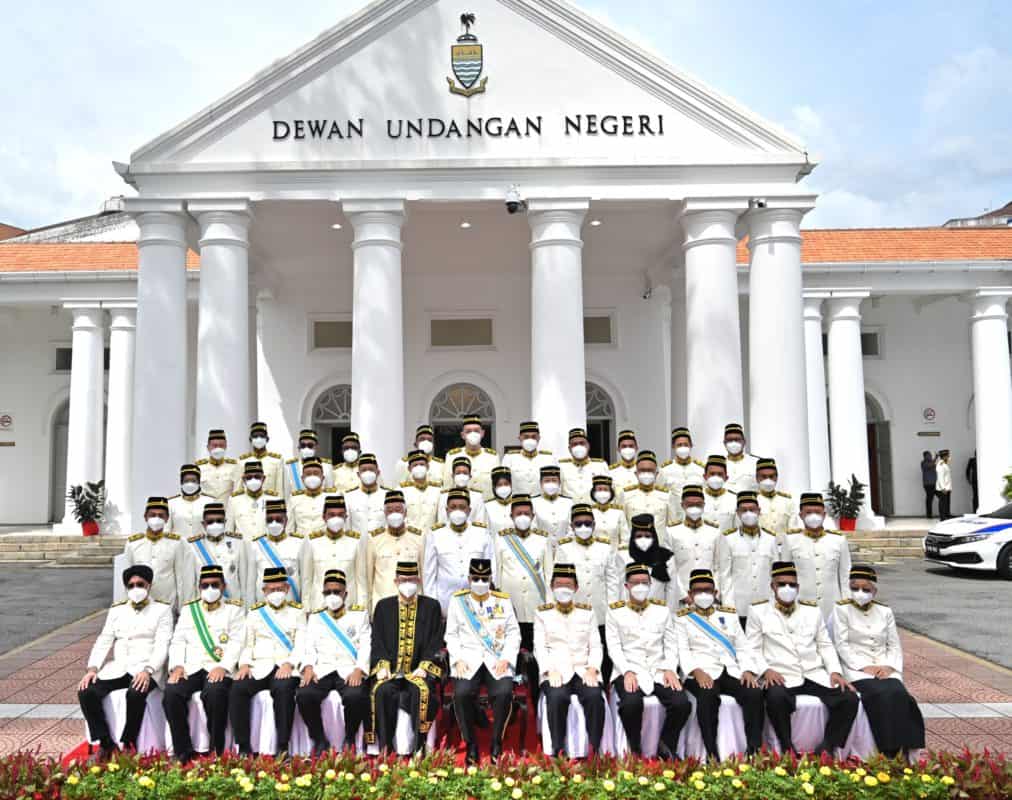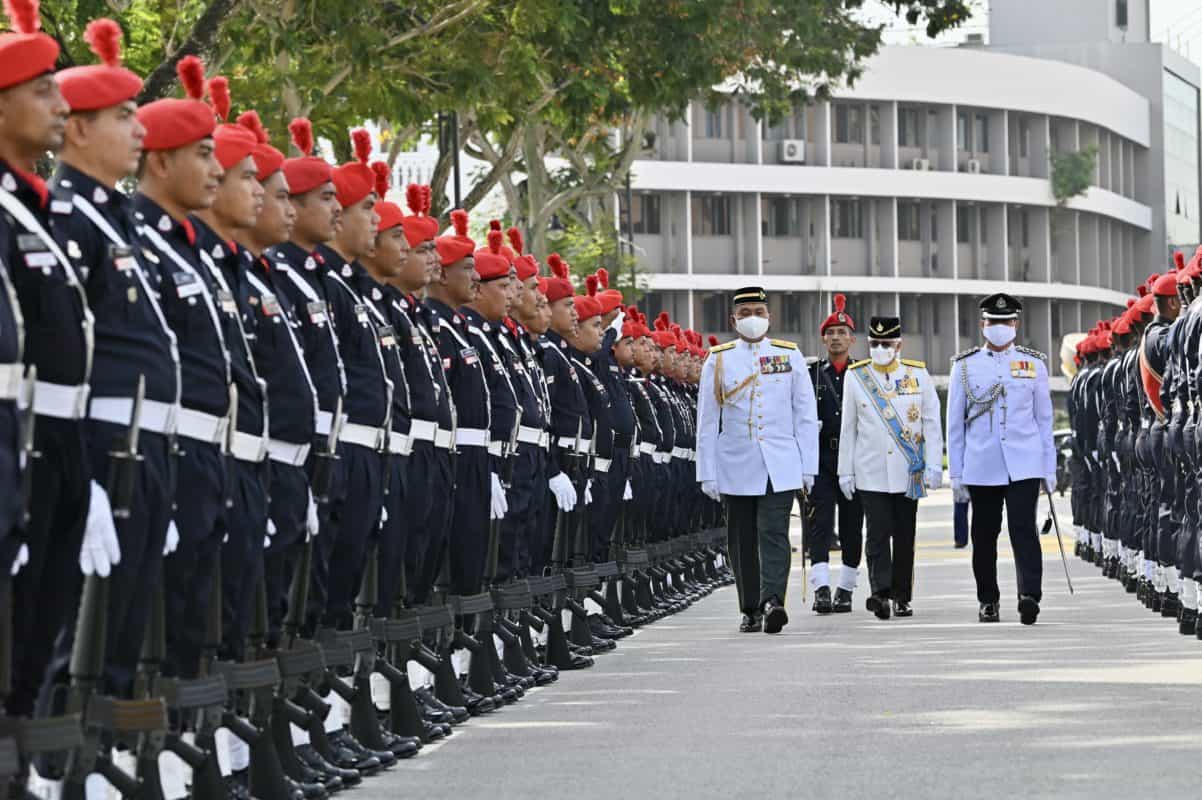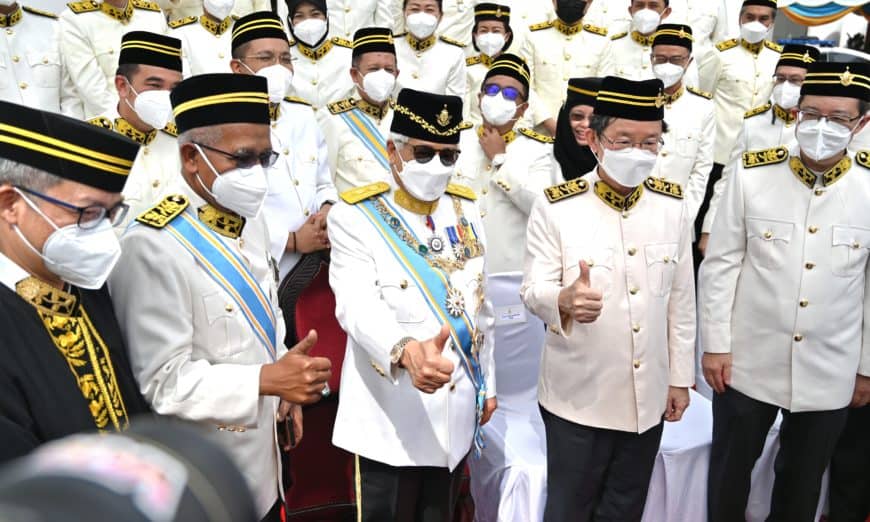PENANG must not continue to be plagued by the Covid-19 pandemic trend and the state needs to focus its strength to move forward, Penang Governor Tun Ahmad Fuzi Abdul Razak said.
“It is time for us to direct our energy to bring prosperity to the people and for Penang to become a prosperous state.
“Malaysia entered the ‘transition to endemic phase’ on April 1 this year, and this marks the Government’s ‘exit strategy’ approach to enable the people to return to a near-normal life after more than two years of practising Covid-19 prevention standard operating procedures,” Ahmad Fuzi said in his speech during the opening of the State Legislative Assembly today.
He highlighted that Penang has made history after it managed to achieve its record-breaking total approved manufacturing investments of RM76.2 billion in 2021.
“According to the data released by the Malaysian Investment Development Authority (Mida), the state’s investment inflows in 2021 involved 111 projects. The investments are expected to provide 12,024 new job opportunities.
“The cooperation between the Federal Government and the state government is important to ensure that the planned development and infrastructure projects are implemented following the set timeline so that the people can enjoy the benefits.
“Under the Second Rolling Plan (RP2) of the 12th Malaysia Plan 2022, a total of 189 projects in Penang are listed, comprising 163 physical projects and 26 non-physical projects. The Federal allocation that was approved for Penang amounted to RM997 million, which was equivalent to 1.3% of the national development allocation.
“Considering the contribution by Penang to the nation’s Gross Domestic Product (GDP) as well as the state’s recent investment performance, it is appropriate for the Federal Government to consider a higher development allocation for Penang,” Ahmad Fuzi said.

He also stressed the importance of food security.
“Penang may not have as much agricultural land as other states in Malaysia; however, we are able to increase crop productivity by using high yielding crop varieties in a short period, using agricultural inputs that promote growth, and applying modern technology that does not use soil as a plant medium.
“The state’s paddy production is ranked among the highest in the country. Penang’s paddy production took pole position in the year 2020 with an average paddy production of 5.214 metric tons per hectare compared to 5.012 metric tons per hectare recorded in 2019. In 2022, the state Agriculture Department targets an average paddy production of 6.2 metric tons per hectare.
“Penang was also the highest producer of caged fish in Malaysia for three consecutive years – 2019, 2020, and 2021 – with a production of 12,039.45 metric tons and with a value of RM260.8 million,” he said.
Ahmad Fuzi also highlighted that according to the telecommunication coverage statistics from the Malaysian Communications and Multimedia Commission (MCMC), Penang was recognised as the second-best state in Malaysia after Kuala Lumpur.
“The broadband penetration rate for every 100 residents in Penang is currently 153.5%, which is above the national rate of 128.2%, while the fixed broadband penetration rate (wired) in the state is 49.4% which is above the national rate of 41.4%.
“The state government and Digital Nasional Berhad (DNB) have also started the implementation of 5G in Penang, with 151 locations on the island have been identified by DNB to be implemented for Phase One this year. The focus will be given to the island’s city centre, high-density areas, tourist hotspots and industrial areas,” he said.
Speaking on the topic of international technology events, the Governor said that two major events would be held in Penang this year, namely SEMICON Southeast Asia (SEMICON SEA) 2022 in June and World Congress on Information Technology (WCIT) 2022 in September.
“The state expects to receive about 4,000 international participants from over 80 countries for the WCIT 2022,” he said.
Ahmad Fuzi also praised the state government, led by Chief Minister Chow Kon Yeow, for prioritising the people’s survival during the critical Covid-19 period.

“The Penang government provided various incentives and assistance to reduce the burden of the most affected and reactivated the state’s economy.
“The state has allocated some RM176.45 million to aid the most impacted community between 2020 and this year.”
He added that the state government had also strived to eradicate hardcore poverty through the Agenda Ekonomi Saksama (AES) programme which was initiated in July 2009. The AES was a monthly financial assistance programme to help poor households.
“The merger of AES with the Social Welfare Department (JKM) General Assistance was made in 2020 to optimise financial resources and ensure efficient governance. It was rebranded as the Bantuan Agenda Ekonomi Saksama (BAES). One thousand six hundred and forty-eight heads of households have received the BAES as of March this year,” he said.
Ahmad Fuzi also spoke about the success of the state’s Mutiara Foodbank which was formed in 2017. He mentioned that 250 tons of food were saved in 2021 and they have benefitted 24,962 people.
Later, he commended the state for its commitment to providing comfortable and adequate housing for the B40 and M40 groups.
“The state has managed to ensure that a total of 45,903 affordable homes (Category A, B and C) are completed, while 18,354 units are in various phases of construction and 72,076 units are in the planning stage,” he said.
Meanwhile, the Penang government had fulfilled its target of planting 100,000 trees from 2018 to 2023.
“The local authorities have planted 106,777 trees from 2018 until today,” the Governor said.
He added that the state government would continue to be committed to upholding Islam as the official religion of the Federation and strengthening Islamic teachings in Penang.
“Last year, the state government has approved an RM18.61 million development allocation under the Penang Islamic Religious Affairs Department for the implementation of development projects at Pusat Falak Sheikh Tahir, all mosques and suraus, Sekolah Agama Rakyat (SAR), District Religious Office, Kompleks Darul Hidayah for new Muslim converts, and Kolej Islam Teknologi Antarabangsa (KITAB) for the convenience of students and staff.
“This commitment is enhanced with the approval of an RM19.95 million development allocation this year, which is an increase of RM1.34 million,” he said.
He also said that the Penang government has always been prioritising religious harmony.
“The state has allocated 9.24 acres of land, equipped with basic infrastructure, in Ampang Jajar for religious organisations to set up non-Islamic houses of worship (RIBI).
“Thirty-five religious organisations have been considered by the state government. The Penang government has offered the lands in separate lots to the applicants, and the lots will be leased according to the value set by the Valuation and Property Services Department (JPPH) with a reduction of 50% from the original price.
“The land lease offer letters were submitted to all 35 associations on Feb 15 this year, where the lease will commence on June 1 this year after the Certificate of Completion and Compliance (CCC) for infrastructure works for the said land is approved,” he said.
Ahmad Fuzi also spoke about human capital development, the state’s tourism recovery action plan, youth and sports, flood mitigation projects and the much-awaited Gurney Wharf project.

Earlier, Ahmad Fuzi inspected the guard-of-honour mounted by the Penang Federal Police Reserve Force. The guard-of-honour, led by DSP Mohd Hakim Mohd Said, comprised three officers and 102 members of other ranks.
Story by Christopher Tan
Pix by Ahmad Adil Muhamad and Muhamad Amir Irsyad Omar
Video by Noor Siti Nabilah Noorazis

